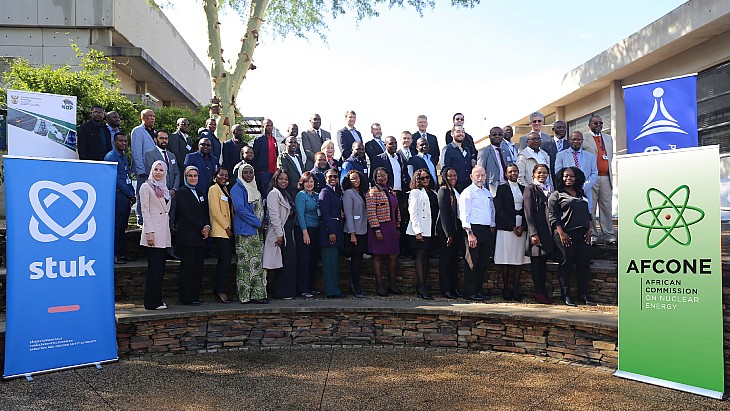The programme, which aims to strengthen nuclear material control measures in Africa, was launched at the South African Nuclear Energy Corporation (Necsa) in Pretoria this week.
Enobot Agboraw, executive secretary of AFCONE, said: "African states are in different stages when it comes to the peaceful uses of nuclear energy, and many need to build capacity to maintain state systems of accounting for and control of nuclear materials, and to effectively implement IAEA safeguards."
The main goal of the AFCONE safeguards programme is to "provide support for the development of effective nuclear safeguards and effective systems of accountancy along with control of nuclear materials as key elements of non-proliferation in Africa", with peer-support from STUK to "ramp up its operations as a regional knowledge-hub and coordinator for safeguards activities".
With Africa being rich in natural resources the programme will complement the goal of utilising nuclear energy for socioeconomic development.
The International Atomic Energy Agency (IAEA) safeguards system is a set of technical measures through which the agency seeks to independently verify nuclear facilities are not misused and nuclear material is not diverted from peaceful uses. So far, 47 African states have signed a comprehensive safeguards agreement (CSA) with the IAEA - part of the requirements under the Pelindaba Treaty, established in 2009, which established the African Nuclear Weapon Free Zone.
STUK Director General Petteri Tiippana described it as the "beginning of an exciting journey", adding: "We are experienced in regulatory control of nuclear materials and in providing expert support in non-proliferation matters, as Finland was the first country in the world to bring a CSA into force, over 50 years ago. Because we have the know-how, we have a duty to share knowledge. This is our way of contributing to safety globally."
Agboraw said: "In Africa, there is real momentum for developing safeguards. There is commitment at national levels, there is the regional support structure - AFCONE - and now we can also benefit from Finland's top-of-the-line safeguards expertise. I see that in five years we can substantially improve regulatory control for nuclear materials in many African countries and build sustainable regional structures."
Loyiso Tyabashe, Necsa CEO, said: "Necsa brings on board extensive knowledge and expertise on nuclear safeguards. It is honoured to host a programme of this nature. As a country we have a strong commitment towards non-proliferation as well as our ability to utilise nuclear energy and technology to contribute to our socio-economic development."





_23009.jpg)

_33392.jpg)
_13618.jpg)






